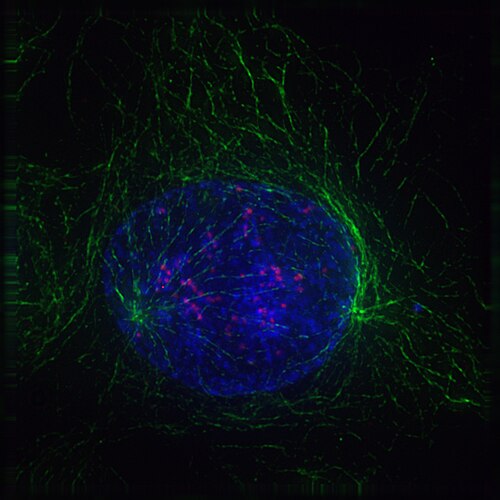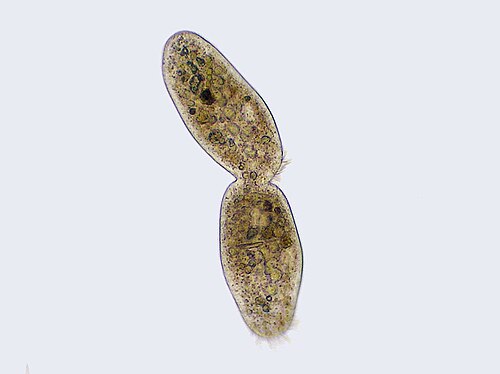Mitosisnoun
(cytology) The division of a cell nucleus in which the genome is copied and separated into two identical halves. It is normally followed by cell division.
Mitosisnoun
See Karyokinesis.
Mitosisnoun
cell division in which the nucleus divides into nuclei containing the same number of chromosomes
Mitosisnoun
a type of cell division that results in two daughter cells each having the same number and kind of chromosomes as the parent nucleus, typical of ordinary tissue growth
Mitosis
In cell biology, mitosis () is a part of the cell cycle in which replicated chromosomes are separated into two new nuclei. Cell division gives rise to genetically identical cells in which the total number of chromosomes is maintained.
Meiosisnoun
A figure of speech whereby something is made to seem smaller or less important than it actually is; understatement.
Meiosisnoun
Cell division of a diploid cell into four haploid cells, which develop to produce gametes.
Meiosisnoun
Diminution; a species of hyperbole, representing a thing as being less than it really is; understatement; see also litotes.
Meiosisnoun
The cellular process by which a diploid progenitor cell forms haploid gametes, including a division of one diploid cell into two cells, each with one of the homologous sets of chromosomes.
Meiosisnoun
(genetics) cell division that produces reproductive cells in sexually reproducing organisms; the nucleus divides into four nuclei each containing half the chromosome number (leading to gametes in animals and spores in plants)
Meiosisnoun
understatement for rhetorical effect (especially when expressing an affirmative by negating its contrary);
Meiosis
Meiosis ( (listen); from Greek μείωσις, meiosis, meaning , because it is a reductional division) is a special type of cell division of germ cells in sexually-reproducing organisms used to produce the gametes, such as sperm or egg cells. It involves two rounds of division that ultimately result in four cells with only one copy of each chromosome (haploid).












